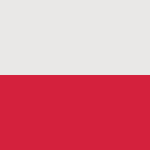5 hours with guide in Kraków
#Guide in Kraków #Local tour guide in Krakow #Private tour guide in Kraków #local guide in Krakow #tourist guide in Kraków
5 hours – price 1,400 zloty for the whole group
6-7 hours includes a tour of the communist neighbourhood, Nowa Huta, and costs 1,600 zloty. + 11 zloty per person for a tram ticket to Nowa Huta.
Pick-up at your hotel if you are staying in the city centre. Otherwise, we meet at Rynek next to the large church (Kościól Mariacki).
1. Rynek – centre of life and trade in Kraków
We walk around the square and talk about the church, the large building in the centre of the square that was used for trade in the old days. We also see the old City Hall Tower and the neighbouring Little Rynek square.
Here we talk a little about Krakow’s position as the capital of Poland, which the inhabitants find hard to forget, even though it’s been over 400 years since the king moved to Warsaw. On the other hand, people in Kraków consider themselves the cultural capital of Poland.
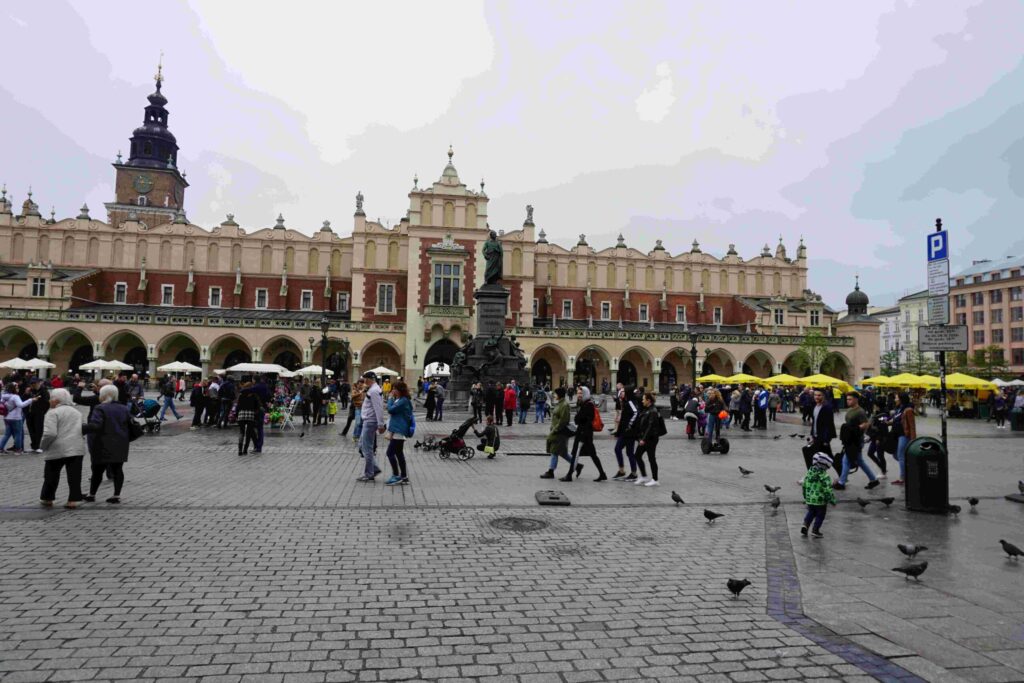
2. The small streets are what creates the atmosphere
We walk through the small historic streets and talk about Kraków during WW2. The city came through the war largely unscathed, which means that today we can see the original old city.
On the way you’ll see the park that surrounds the old city. We’ll also pass the huge Slowacki Theatre and the Barbarkan Fortress
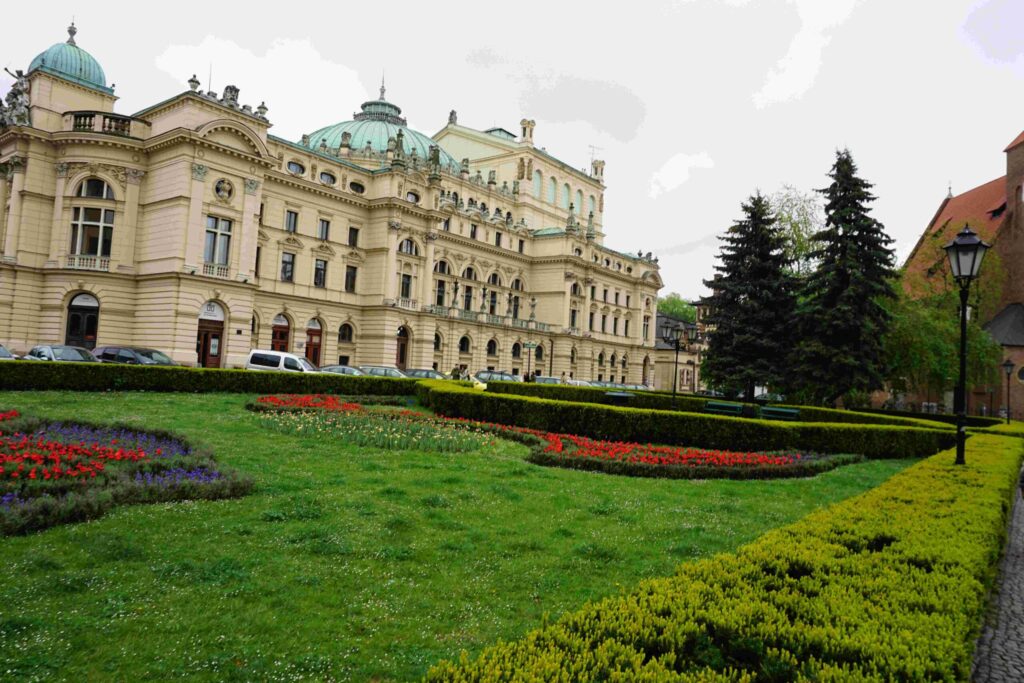
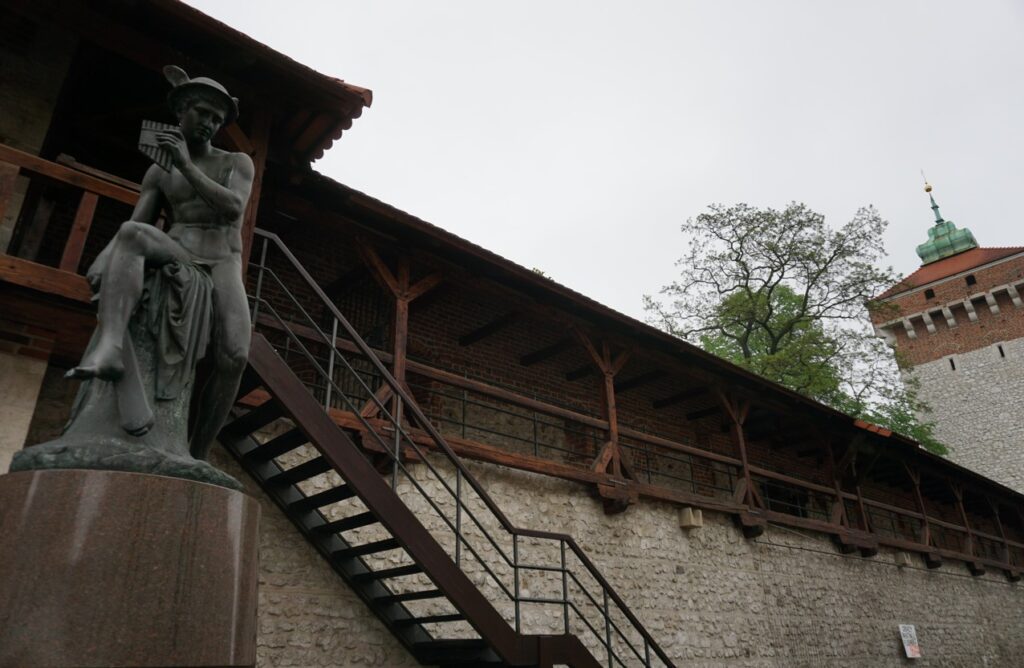
3. Battle of Tannenberg/ Grunwald – maybe the biggest battle in the middle ages
We stop at the monument to the Battle of Grunwald, where a Polish-Lithuanian army defeated the Teutonic Order in 1410. The Order had created a warrior state on the Baltic Sea and I talk about the mutual relationship between the Order and Poland and what happened later to the knights.
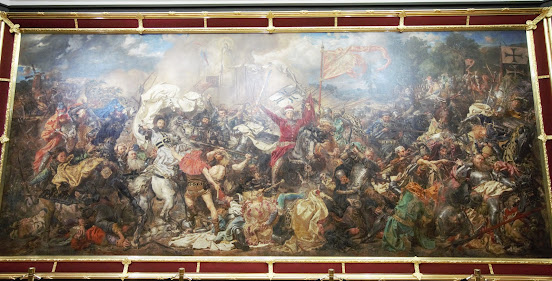
4. The university dates back to 1364 ad
At the university, we talk about the history of the university. Founded in 1364, it is one of the oldest universities in Northern Europe. Students and teachers are fully aware of the university’s history and believe that it has a much higher standard than any other Polish university. We talk a bit about Krakow’s rivalry with Warsaw.
5. The church in Poland and the Polish Pope
We continue past a number of churches and the “Pope’s Window”, where the late saint, Pope John Paul II, appeared in the evening when he was in Kraków.
It’s a great opportunity to talk about the role of the church in Poland, its influence on politics and society, and how the church is perceived by the population today – and there are many different opinions. I also touch on the Pope’s life and influence on big politics in the 1980s.
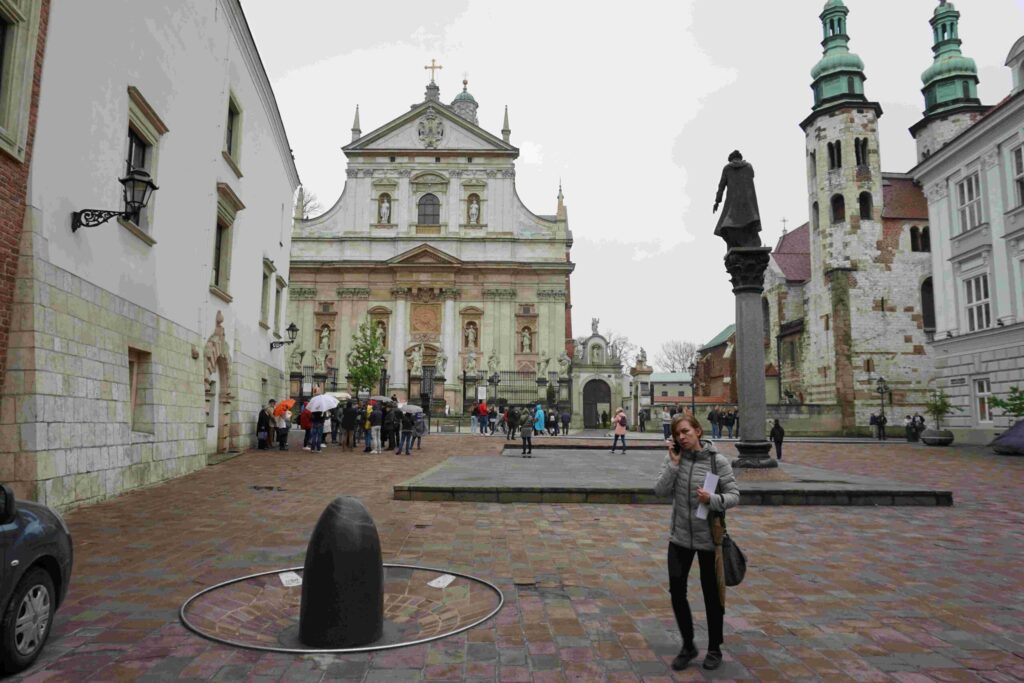
6. Wawel Royal Castle – walk up to the castle and see for yourself – no tickets required.
Here we are greeted by the rebel general Kościuszko, who in 1794 started a rebellion against the Russians on the Rynek in Kraków. Here we talk about how Poland was slowly but surely absorbed by the Russians during the 18th century, although they had to share some of their power with Austria and Prussia. This led to Poland being abolished and divided between the three powers in 1795.
We continue our tour of Wawel, where we see the Dragon, among other things. We’ll also make our way to the king’s residence where we’ll talk about Poland’s role in the Middle Ages, the union with Lithuania and the introduction of elective kings in 1573.
You can visit the castle for free. Tickets only required for the indoor exhibitions.
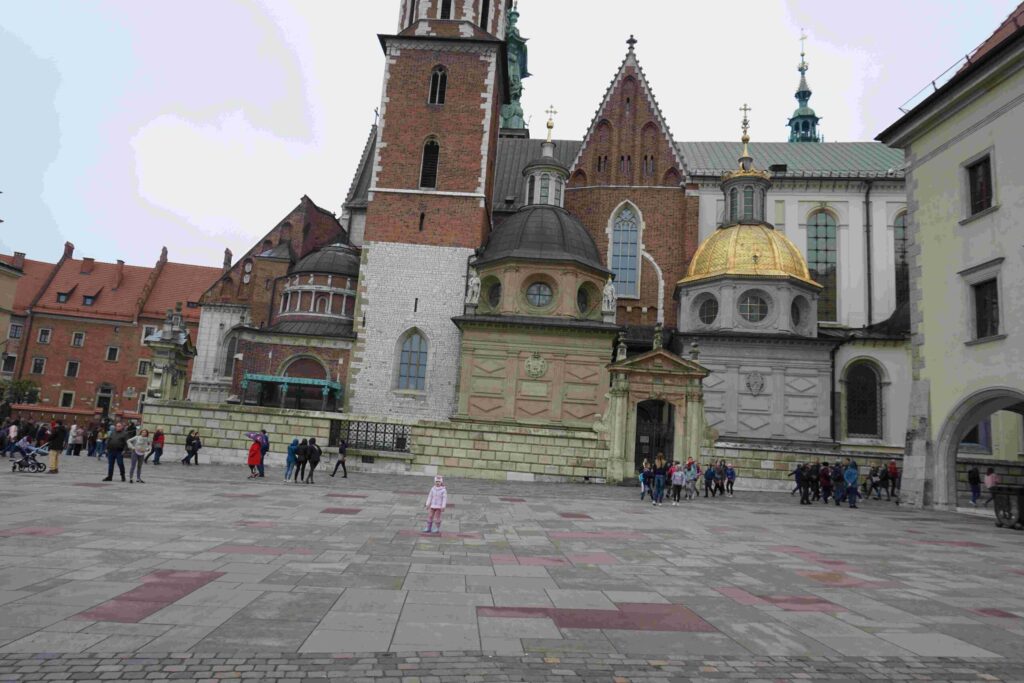
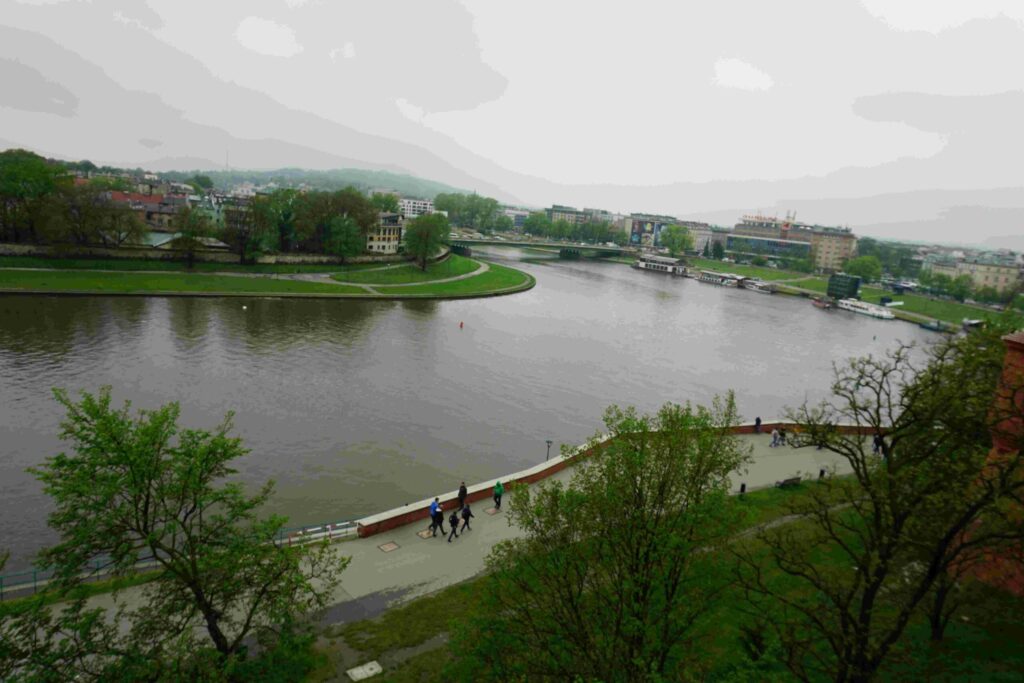
7. The old Jewish neighbourhood, Kazimierz buzzing with life
It’s bustling with life and we stroll around and maybe we take a coffee break. Along the way, I talk about the history of Jews in Poland up to WW2. I’m also talking, of course, about the events during the Nazi occupation.
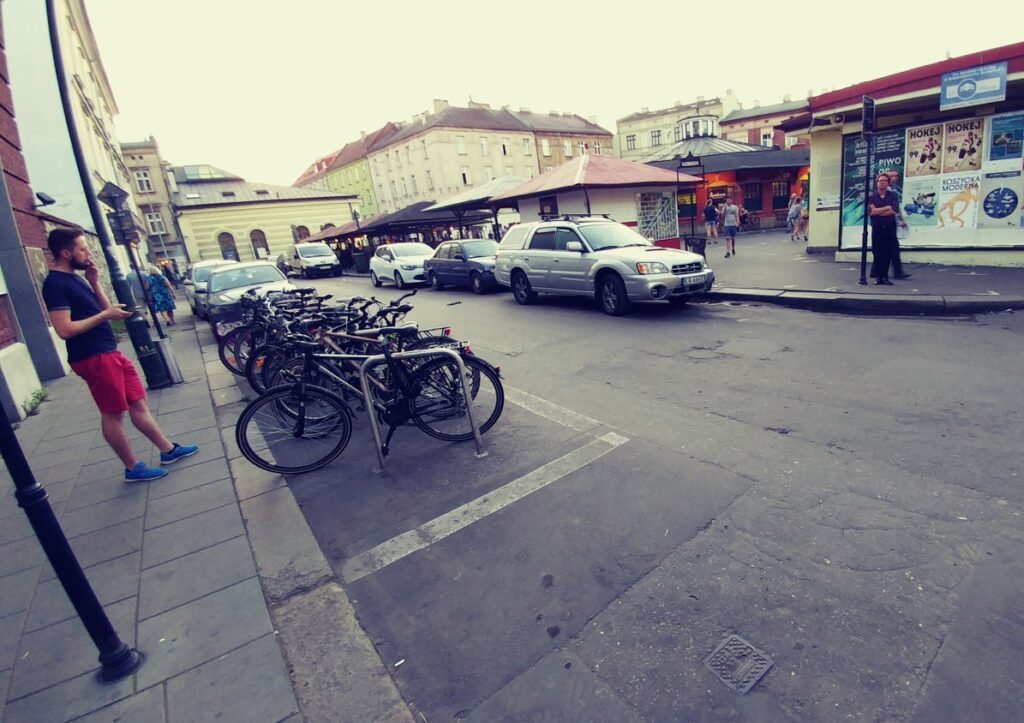
8. Art Museum and Schindler’s Factory. Did you see the film?
We continue the tour to a large art museum where we head inside. Then we end the tour at Schindler’s Factory, where I talk about the story and the film.
Optional: We extend the tour by a few hours and head to Nowa Huta – a neighbourhood built in socialist style after WW2. WW2. Here I will talk about the background of Nowa Huta, the architecture and a bit about socialist construction in general, both right after the war and in the 1970s.
Write to me at m@hardenfelt.pl to arrange a guided tour in Kraków
